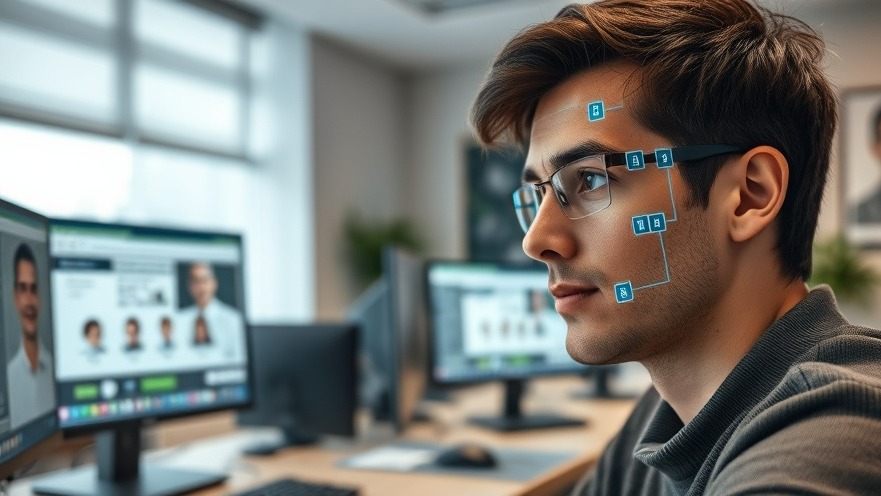
Unlocking Potential: Customized Training for Socio-Emotional Skills
In a groundbreaking study by the University of Geneva (UNIGE), research reveals that customized training can significantly enhance the socio-emotional skills of individuals with multiple disabilities. This pioneering work uses eye-tracking technology to evaluate and develop these essential skills, challenging longstanding assumptions about the capabilities of this often-overlooked population.
The Importance of Socio-emotional Skills
Socio-emotional skills are crucial for communication, socialization, and emotional understanding. For individuals with multiple disabilities—those facing a combination of severe intellectual and motor impairments—the journey towards developing these skills can be particularly challenging. Traditionally viewed as 'untestable,' many in this demographic have been sidelined in discussions about educational and therapeutic interventions, leading to a cycle of neglect and underdevelopment.
Revolutionizing Assessment Methods
The study, published in the journal Acta Psychologica, utilized cutting-edge eye-tracking techniques, enabling researchers to record and analyze eye movements in response to various stimuli. This innovative approach highlighted that individuals with multiple disabilities can exhibit visual preferences, thus opening up new channels for communication and engagement. Prior research indicated that interpreting these signals could unlock new possibilities for assessment and support, and the latest findings from UNIGE make a strong case for personalized training tailored to the needs of these individuals.
The Role of Eye-Tracking Technology
At the heart of this study were customized eye-controlled educational video games. Developed on three software platforms, these games allowed participants to engage in training that enhanced critical socio-emotional skills, including emotion recognition and joint attention. The first software, Gazeplay, is an open-source platform that provides a breadth of eye-controlled gaming experiences. The second, Attention Eye, was specifically designed by graduate students at UNIGE, focusing on core developmental areas. By merging these technologies, researchers have crafted a unique educational experience that directly assesses and cultivates socio-emotional abilities.
Promising Results from Personalized Training
The findings from the year-long study are encouraging. Nine young participants demonstrated significant improvements in sociability and emotional processing through personalized, adaptive training methods. Thalia Cavadini, the doctoral research assistant leading the study, notes that this evidence suggests individuals with multiple disabilities possess learning abilities that were previously underappreciated. Moreover, this study underscores the potential for such technologies to address communication barriers, fostering more meaningful interactions between patients and care providers.
A Broader Impact on Patient Care
For concierge health practitioners, these developments signify a transformative shift in how potentially vulnerable populations can be supported through technology. Equipping practitioners with knowledge of these training protocols could improve the care provided to patients with multiple disabilities, emphasizing the importance of tailored, empathetic engagement. Practitioners can leverage these techniques to enhance communication pathways, ultimately leading to better health outcomes.
Looking Ahead: The Future of Training for Individuals with Disabilities
The implications of this research extend beyond the current findings. As technology evolves, so too will the methods and tools available for enhancing socio-emotional skills in diverse patient populations. Future studies should explore scaling these training methods and their effectiveness across larger cohorts. The integration of such programs into clinical practice raises important questions about accessibility, training staff, and ensuring that all patients have the opportunity to communicate and engage fully.
As we move forward in our understanding of neurodiversity, it’s crucial for health practitioners to stay informed about innovations in patient care technology. Embracing these advancements will uniquely position health providers not just to improve outcomes but to fundamentally change the narrative around individuals with disabilities.
Conclusion: Join the Movement towards Inclusive Practices
The insight derived from this study heralds a future where customized interventions can transform the lives of individuals with multiple disabilities, ensuring they are seen and heard. As health practitioners, it is vital to remain engaged with ongoing research and advancements in technology that enhance patient care. Take action today by exploring how to implement these findings in your practice and advocate for the necessary resources and training to facilitate this change.
 Add Row
Add Row  Add
Add 






Write A Comment